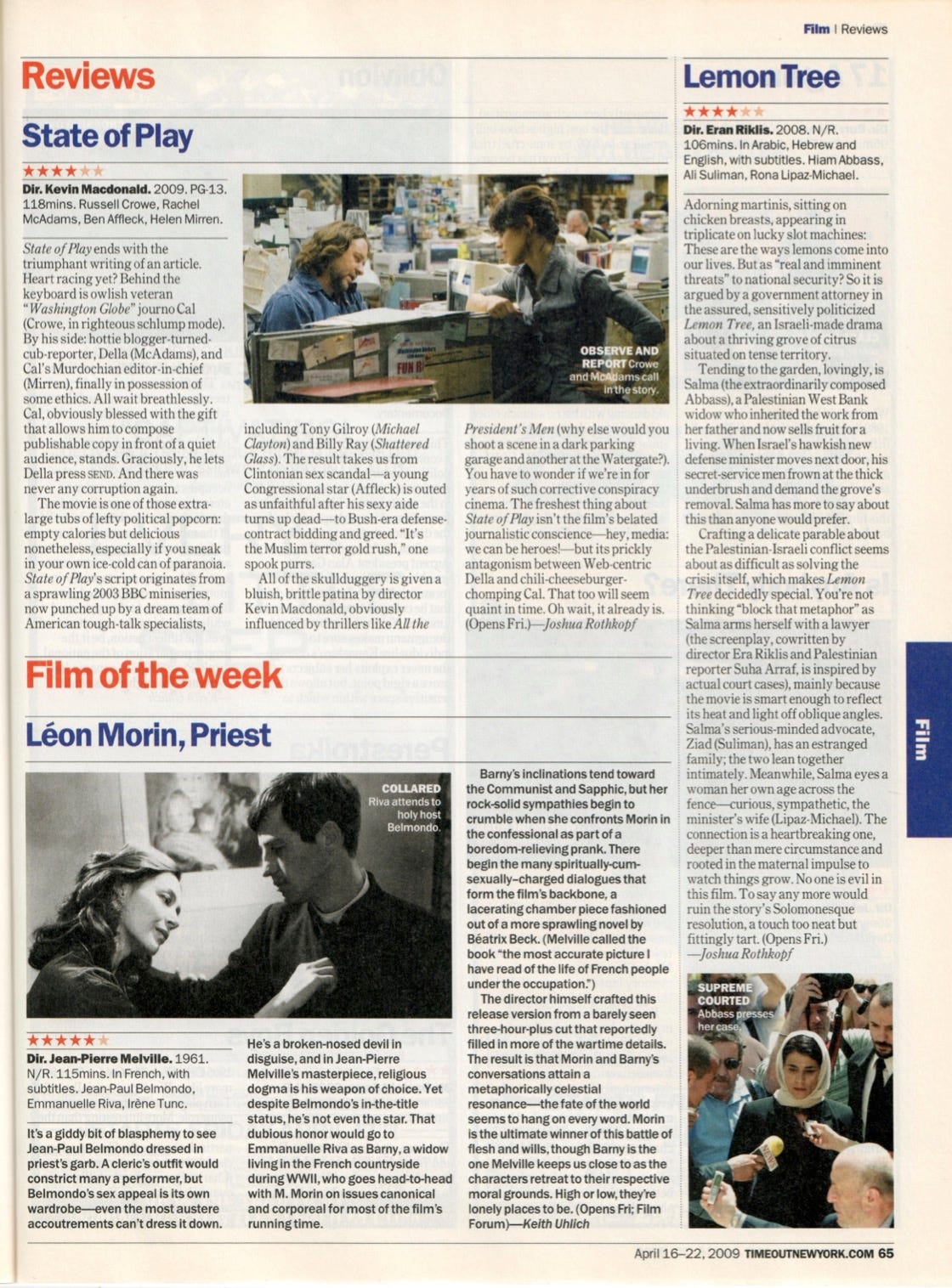Author’s Note: I have no articles in Issues #705 (April 2-8, 2009) or #706 (April 9-15, 2009) of Time Out, so jumping to Issue #707.
★★★★★☆
Dir. Jean-Pierre Melville. 1961. N/R. 115mins. In French, with subtitles. Jean-Paul Belmondo, Emmanuelle Riva, Irène Tunc.
It’s a giddy bit of blasphemy to see Jean-Paul Belmondo dressed in priest’s garb. A cleric’s outfit would constrict many a performer, but Belmondo’s sex appeal is its own wardrobe—even the most austere accoutrements can’t dress it down. He’s a broken-nosed devil in disguise, and in Jean-Pierre Melville’s masterpiece, religious dogma is his weapon of choice. Yet despite Belmondo’s in-the-title status, he’s not even the star. That dubious honor would go to Emmanuelle Riva as Barny, a widow living in the French countryside during WWII, who goes head-to-head with M. Morin on issues canonical and corporeal for most of the film’s running time.
Barny’s inclinations tend toward the Communist and Sapphic, but her rock-solid sympathies begin to crumble when she confronts Morin in the confessional as part of a boredom-relieving prank. There begin the many spiritually-cum-sexually–charged dialogues that form the film’s backbone, a lacerating chamber piece fashioned out of a more sprawling novel by Béatrix Beck. (Melville called the book “the most accurate picture I have read of the life of French people under the occupation.”)
The director himself crafted this release version from a barely seen three-hour-plus cut that reportedly filled in more of the wartime details. The result is that Morin and Barny’s conversations attain a metaphorically celestial resonance—the fate of the world seems to hang on every word. Morin is the ultimate winner of this battle of flesh and wills, though Barny is the one Melville keeps us close to as the characters retreat to their respective moral grounds. High or low, they’re lonely places to be.—Keith Uhlich



